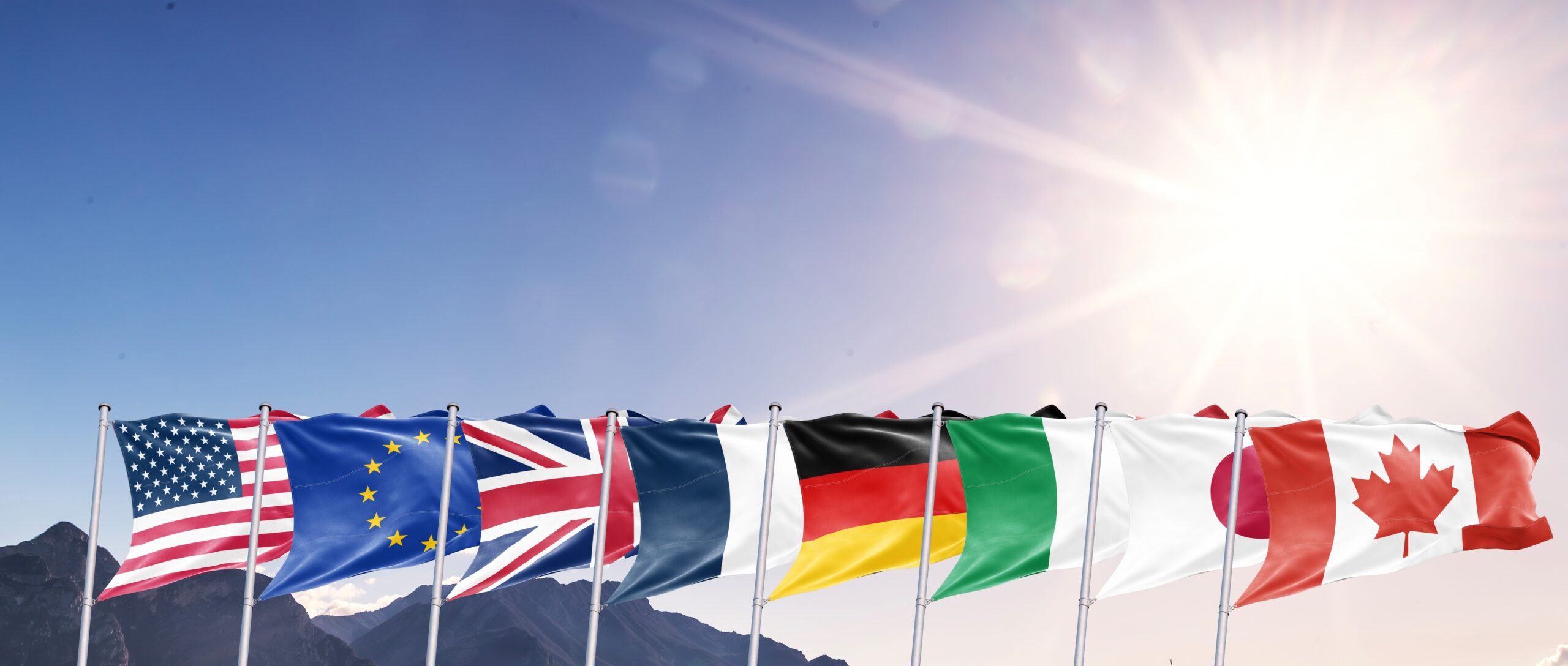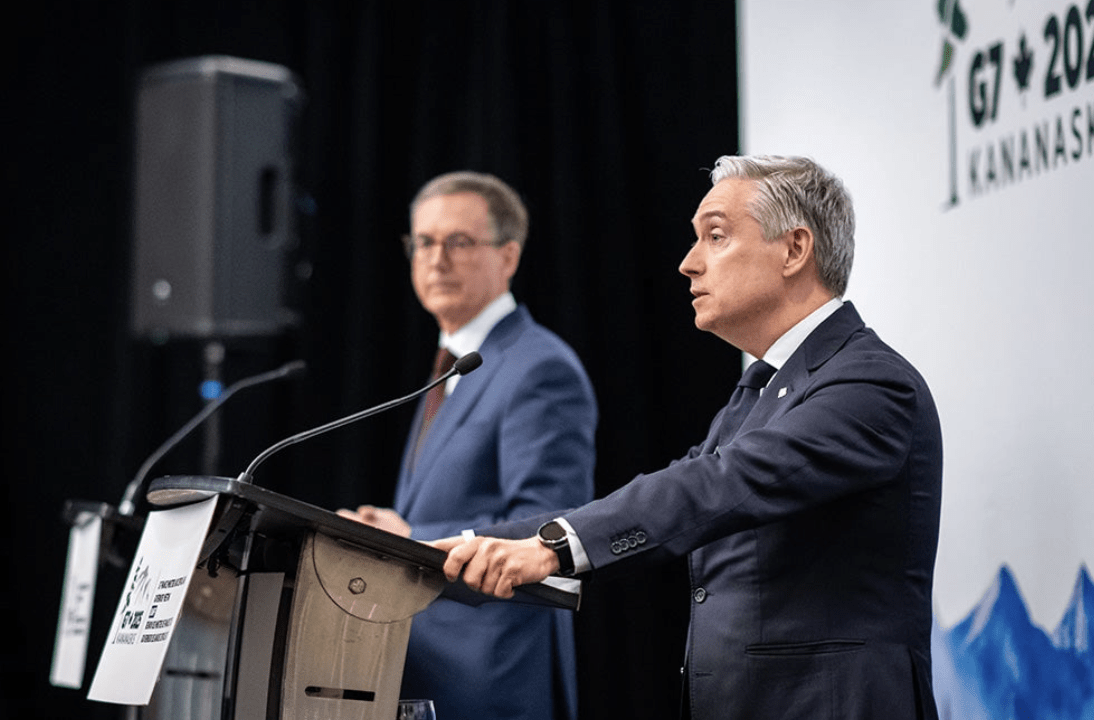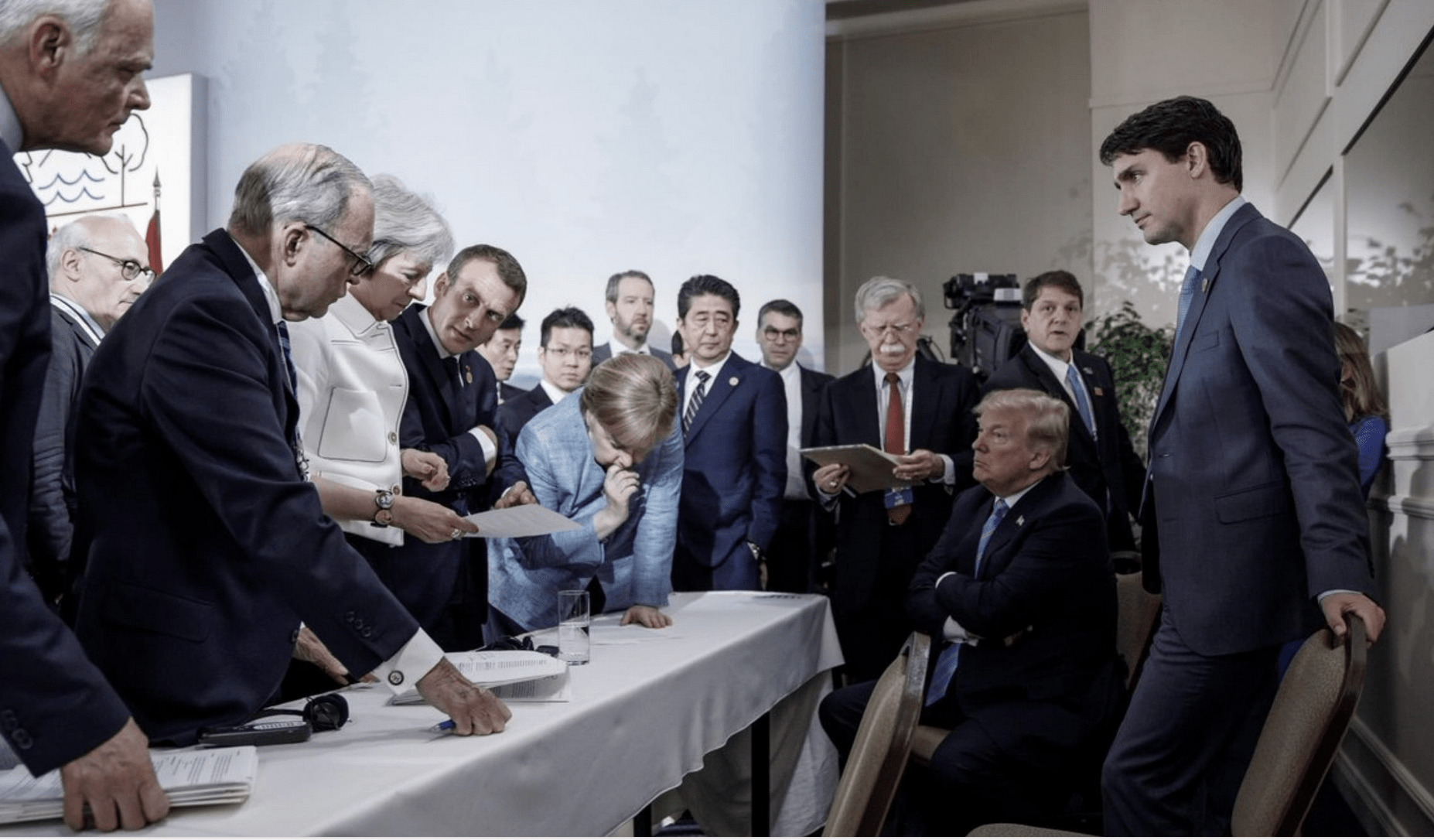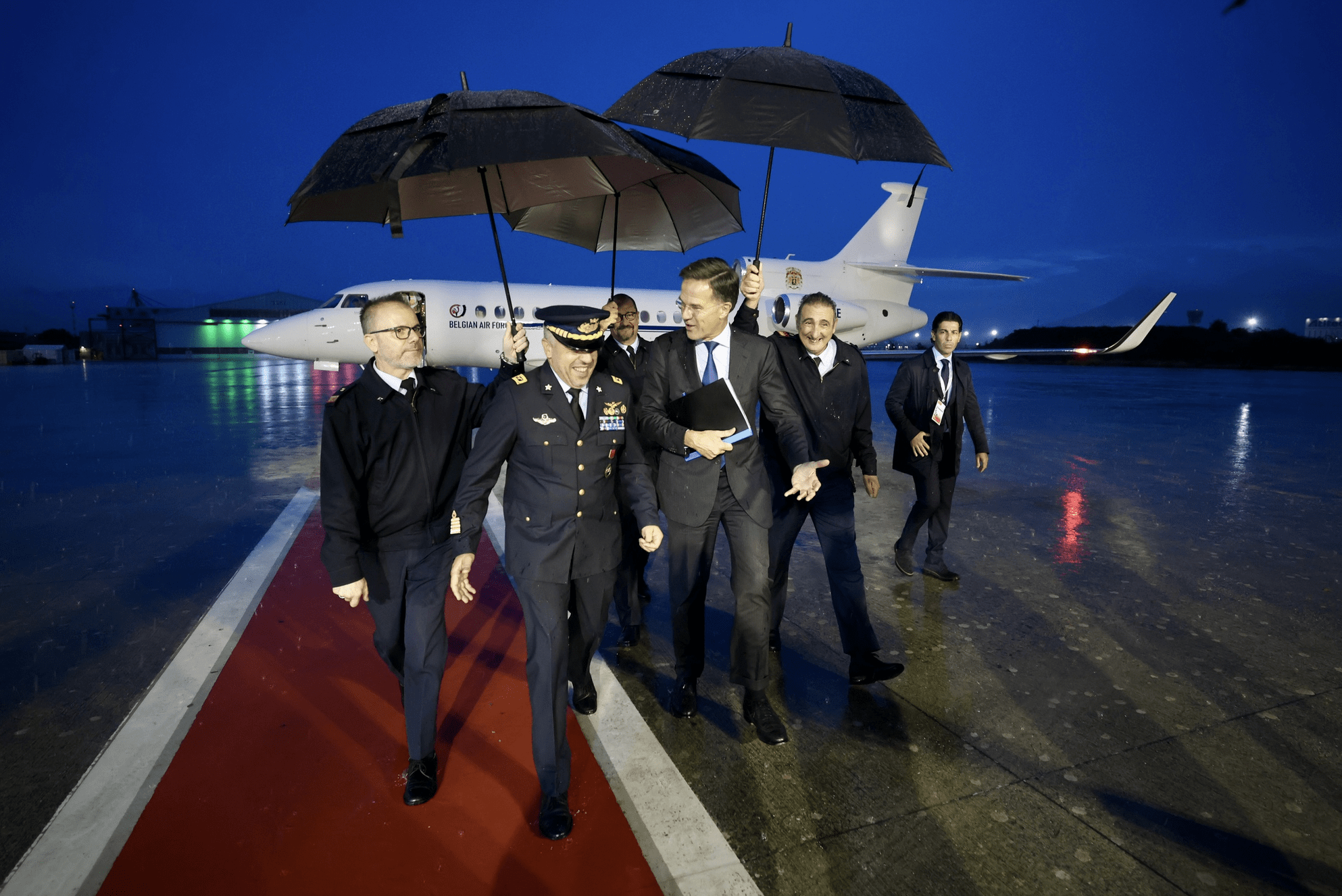Policy Q&A: Former Sherpa Peter Boehm on the Kananaskis G7
 Shutterstock
Shutterstock
Policy Contributing Writer Senator Peter Boehm has served as Canada’s Sherpa for six G7 summits, including the last Canadian G7, at Charlevoix in 2018, which set a standard and precedent for President Donald Trump’s approach to multilateralism. Policy Editor Lisa Van Dusen reached out to Senator Boehm ahead of the first Canadian G7 since then, scheduled for Kananaskis, Alberta June 15-17.
May 31, 2025
Lisa Van Dusen: Sen. Boehm, you communicate regularly with the professionals preparing for Kananaskis; what’s your sense of how things are shaping up? What would be your greatest concern at this point if you were Sherpa for this one?
Sen. Peter Boehm: My sense is that everything is going ahead smoothly. The Sherpas have met a few times to set up and fill in the agenda; the foreign and finance ministers have had their meetings in Charlevoix and Banff respectively; the leaders’ advance teams have come and gone. The G7 engagement groups — Business 7, Youth 7, Labour 7, Women 7, University 7, Think 7, Civil Society 7 — and a few others have all met and provided their input to Canada’s Sherpa, Cindy Termorshuizen, and her team. From what I can gather, the Sherpa meetings have featured constructive discussions and unity of purpose. But the Canadian G7 presidency has been at somewhat of a disadvantage since its formal start in January. Justin Trudeau’s departure, Mark Carney’s arrival and the ensuing election campaign and with it, observance of the “caretaker convention”, resulted in a compressed planning cycle from a bureaucratic perspective: apportioning the necessary funding through a Treasury Board submission, setting up the Summit Management Office (i.e. the logistical arm that makes all arrangements), liaison with other levels of government — including at the local level — as well as outreach to Indigenous leaders.
Newly elected Prime Minister Carney had to set his priorities, particularly with respect to our relationship with the US, and his visit to the White House to meet President Trump set the tone. Add to this the establishment of his cabinet, the royal visit, and Speech from the Throne, all leaving little time to concentrate on the Kananaskis agenda. On the other hand, Carney is a veteran of such events, having represented two countries over several governments at multiple summits as a central bank governor. Yet this is his first time at the leader’s table, and it is up to him to guide and chair the conversation. From a Sherpa’s perspective, the greatest concerns are the “known unknowns”: a major international or domestic event that would impact the agenda (as in the sovereign debt crisis in 2008 or the terrorist attacks of 9/11), a fit of pique on the part of a participant, a provocative posting on Truth Social. I am remarkably familiar with the latter. The team must have some contingency scenarios in place and be agile.
 Finance Minister François-Philippe Champagne and Bank of Canada Governor Tiff Macklem in Banff, May 22, 2025/G7 image
Finance Minister François-Philippe Champagne and Bank of Canada Governor Tiff Macklem in Banff, May 22, 2025/G7 image
LVD: The host posture telegraphed by Finance Minister François-Philippe Champagne during the G7 Finance Ministers meeting in Banff last week amounted to a diplomatic version of “Don’t worry, be happy”, which seemed both pragmatic and as Canadian as possible under the circumstances. You survived Charlevoix to tell the tale — do you think that tone will hold?
SPB: If I recall correctly, Bobby McFerrin’s song refers to trouble in life and how “if you worry you make it double.” I think both ministers Champagne and Mélanie Joly (in her previous role as foreign affairs minister) deserve credit for pulling off two challenging ministerial meetings. The “don’t worry be happy” adage is therefore pertinent. The meetings of foreign and finance ministers have been a mainstay of the G7 over the 50 years of its existence (including its 16 as the G8). The statements and communiqués from these recent ministerial meetings show the comprehensive nature of G7 discussions, both in terms of legacy issues and current items. The tone is serious professionalism, whether at the foreign ministers’ meeting in addressing the situation in Ukraine, peace and stability in the Middle East, Indo-Pacific security, regional issues (Haiti, Venezuela, Sudan and Congo) or the work of various mandated working groups. The finance ministers, joined by their central bankers as well as the heads of the IMF, World Bank Group, OECD, Financial Stability Board and the Financial Action Task Force (originally created by the G7 in 1989) issued a communiqué that addressed global economic growth, turbulence in financial markets, the application of AI in the financial sector, recovery and reconstruction in Ukraine, data security, cyber risks and the impact of quantum technologies on the financial sector, financial crime and support for the Global South. In an ideal summit setting and world, this tone should hold. There may of course have been behind-the-scenes discussions at the Banff meeting as to the impact of the Trump tariffs in terms of downside economic risks and the effect on the global bond market. There is the rub and the worry.
 Sen. Peter Boehm, far left, as Sherpa to the Charlevoix G7 in 2018/Adam Scotti photo
Sen. Peter Boehm, far left, as Sherpa to the Charlevoix G7 in 2018/Adam Scotti photo
LVD: Notwithstanding certain unscheduled diversions, a lot of substance came out of Charlevoix. Is it possible that the meat-and-potatoes, policy side of the G7 is, up to a point, Trump-proof now, or does the sheer irrationality of this presidential term — especially vis-à-vis Canada — make that wishful thinking?
SPB: The G7 summit at Charlevoix had several substantive outputs, some of which are still relevant today. I believe working on a lengthy leaders’ consensus-based communiqué is beyond the collective reach of the negotiators and the leaders themselves. Instead, issuing several statements on weighty issues and/or a chair’s summary could maintain that tone set in the ministerial meetings thus far. Quite frankly, I do not think any multilateral leaders’ meeting can be made “Trump-proof”. As Prime Minister Carney said during his meeting at the White House, Donald Trump is a transformational president. Much can be read into this remark. What is clear, in my experience, is that President Trump prefers bilateral meetings, rather than a group discussion. The former gives him an advantage, the latter stretches the sustainability of his interest. With several newer leaders at the table in Kananaskis (Friedrich Merz of Germany, Keir Starmer of the United Kingdom, Shigeru Ishiba of Japan and Mark Carney of Canada) plus veterans Emmanuel Macron of France, Georgia Meloni of Italy and Ursula Von der Leyen of the European Commission, Trump will have no shortage of bilateral meetings. Add to these those leaders who will attend the “outreach session” on the last day, starting with Volodymyr Zelenskyy of Ukraine. I think there may be more attention and emphasis on bilateral meetings at this summit than at any other before. That beautiful word “tariffs” will feature in each of them. This should not come as a surprise in that the US imposed steel and aluminum tariffs on all G7 members two months before the Charlevoix summit in 2018 after we thought we had struck an agreement on a monitoring mechanism on Chinese oversupply and dumping.
 NATO Secretary General Mark Rutte arriving in Naples for a meeting of G7 defence ministers, Oct. 18, 2024/NATO
NATO Secretary General Mark Rutte arriving in Naples for a meeting of G7 defence ministers, Oct. 18, 2024/NATO
LVD: Six of these seven leaders will be attending the NATO summit at The Hague a week after this one. If you were Mark Rutte, what would you be watching for?
SPB: With NATO Secretary General Mark Rutte recently saying he foresees this year’s NATO summit agreeing on a 5%-of-GDP target for military spending, and President Trump complaining that too many allies are getting a free ride, there is no doubt that this item will find itself on the agenda for most bilateral meetings at Kananaskis, save those with Japan, which is not a NATO member, but is a NATO partner in the Indo-Pacific region. My own perspective looks beyond the GDP percentage: Canada is the seventh-largest NATO contributor and has increased its defence spending by 58% since 2014. For the past eleven years, Canada has also led a NATO brigade in Latvia. The Speech from the Throne included a promise to increase defence spending, echoed by the minister of national defence in a speech the next day. It also committed Canada to joining ReArm Europe, which, according to the Prime Minister, will happen by July 1st.
LVD: What would you like to see among the major takeaways from this G7, in terms of both substance and optics?
SPB: Ideally, there would be several takeaways. Substantively, the leaders could endorse a strategy to manage and regulate the use of Artificial Intelligence (they had set out some framework principles at Charlevoix in 2018); they could place emphasis on dealing with climate-induced events (we have wildfires in Canada at this moment); they could stress their firm commitment to global economic growth and helping the Global South; they should reiterate their common support for Ukraine and ending the disaster that is Gaza; they could be courageous in stressing that migratory challenges require compassionate policy responses. They could state their support for global institutions and “the rules-based international order” (that is a loss leader; Trump did not want to agree to this in 2018). There will be some discussion on tariffs, not necessarily changing Trump’s mind but indicating that there are consequences to all economies and to global economic growth. Leaders should reach out to the G20 — currently chaired by South Africa — to show common purpose. They could prove that a half-century on, the G7 is still a relevant informal global institution, even becoming that “steering committee of the free world” touted by former US National Security Advisor Jake Sullivan. For it do so, the G7 has to project solidarity in terms of both substance and optics. For Canada, and for Prime Minister Carney, this will be both a leadership challenge and an opportunity.
Senator Peter M. Boehm, a regular contributor to Policy magazine, is a former ambassador and deputy minister and, at prorogation, was chair of the Standing Senate Committee on Foreign Affairs and International Trade.
Policy Magazine Editor Lisa Van Dusen has served as a senior writer at Maclean’s, Washington columnist for the Ottawa Citizen and Sun Media, international writer for Peter Jennings at ABC News and an editor at AP National in New York and UPI in Washington.
